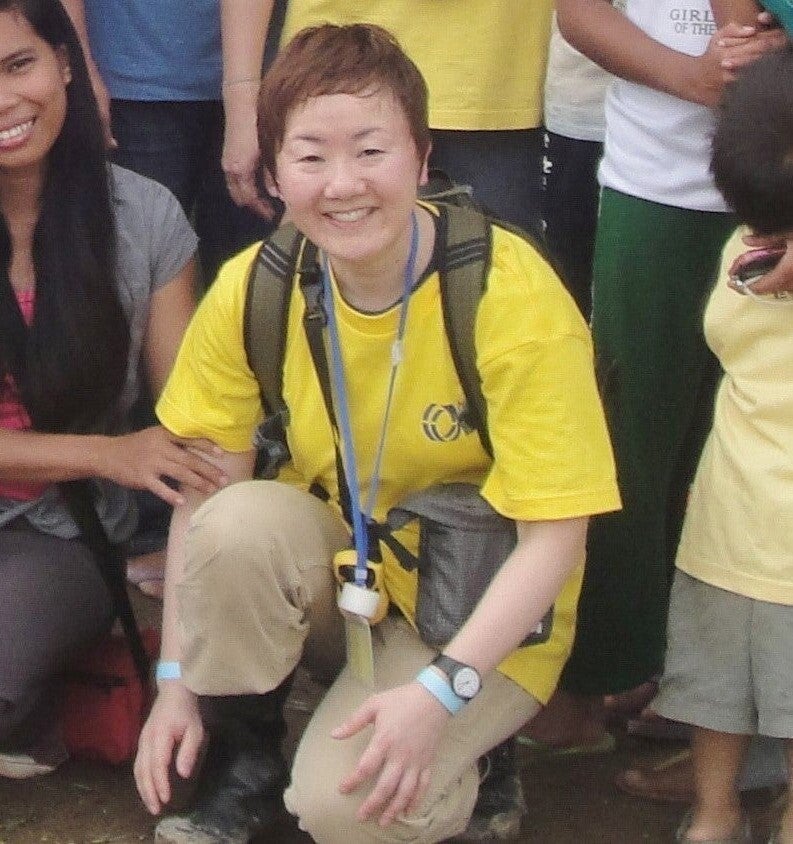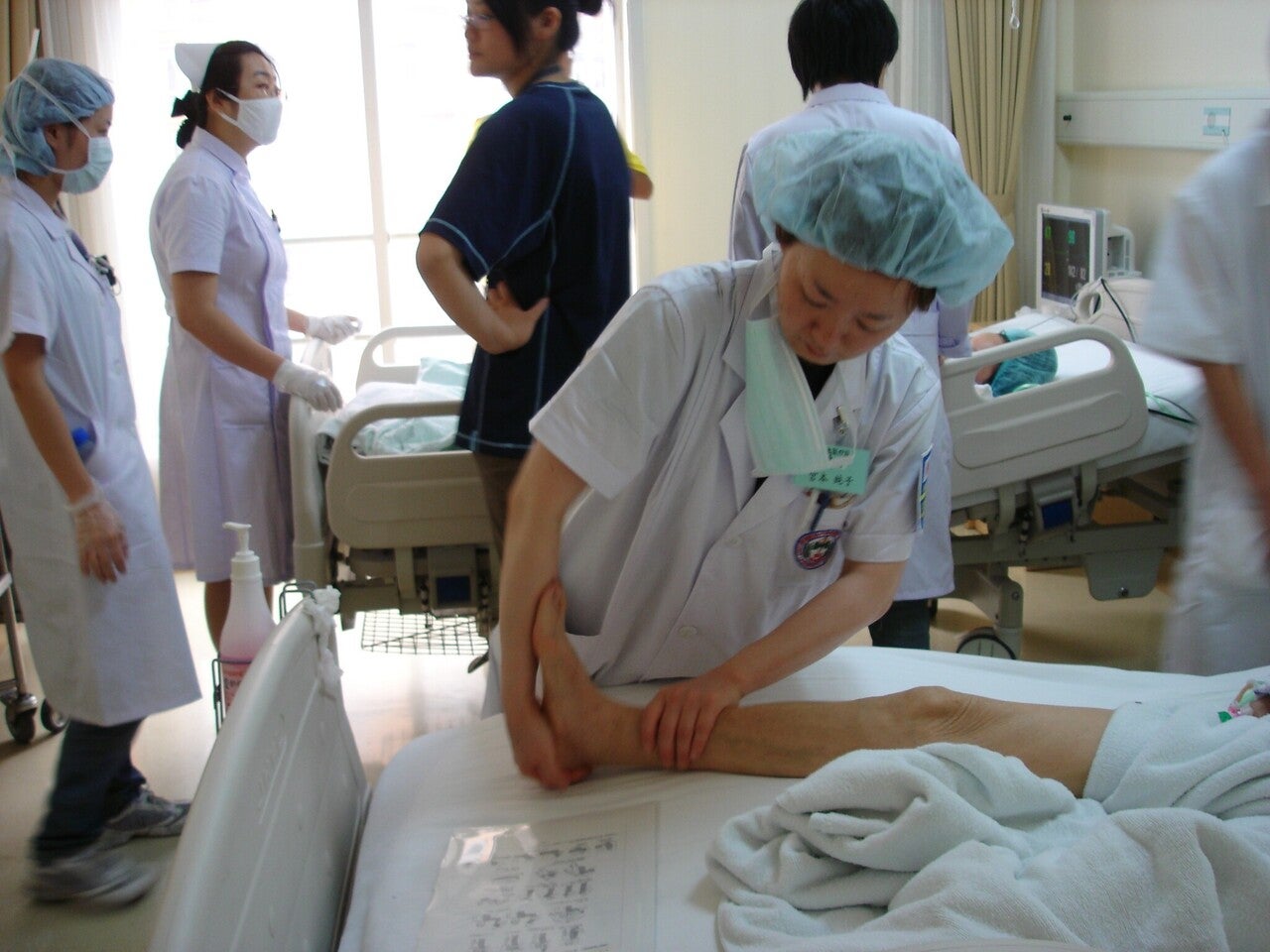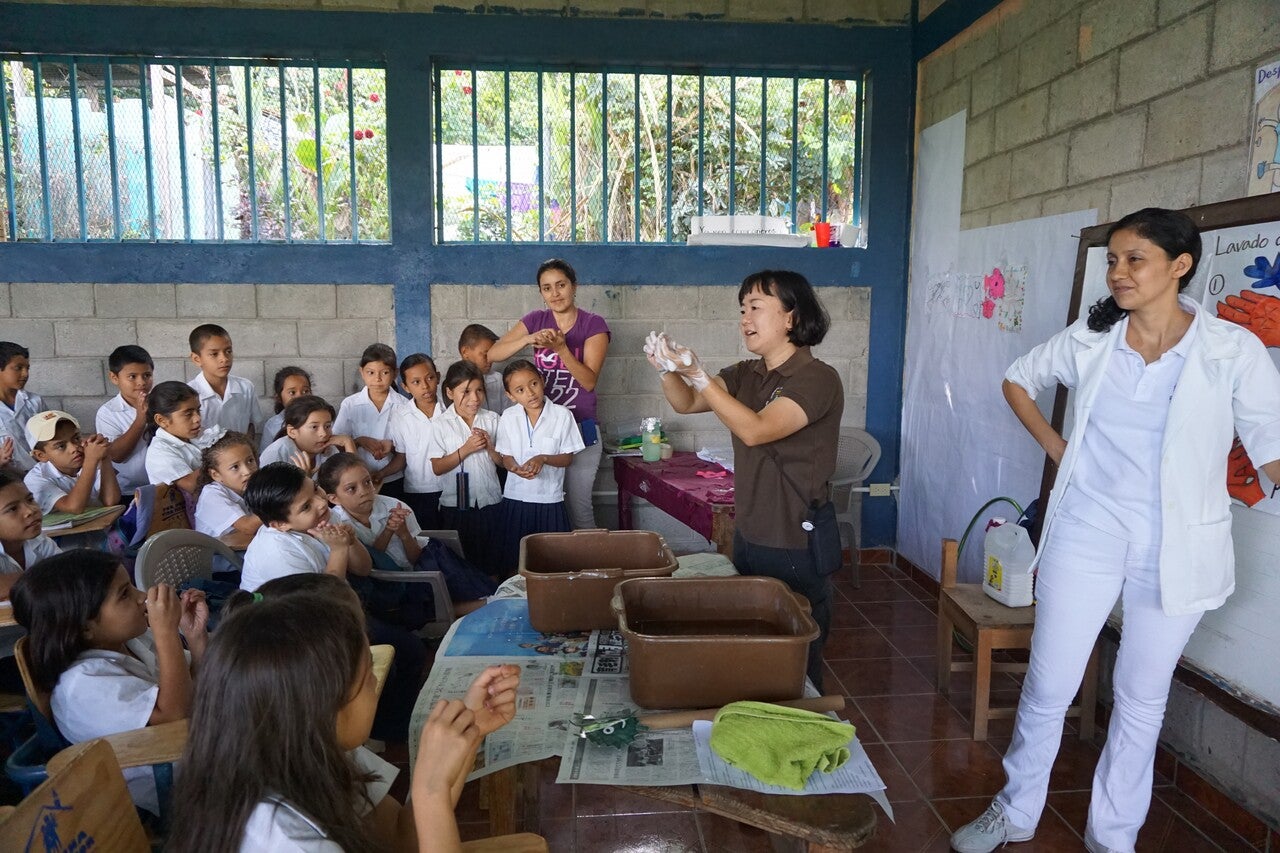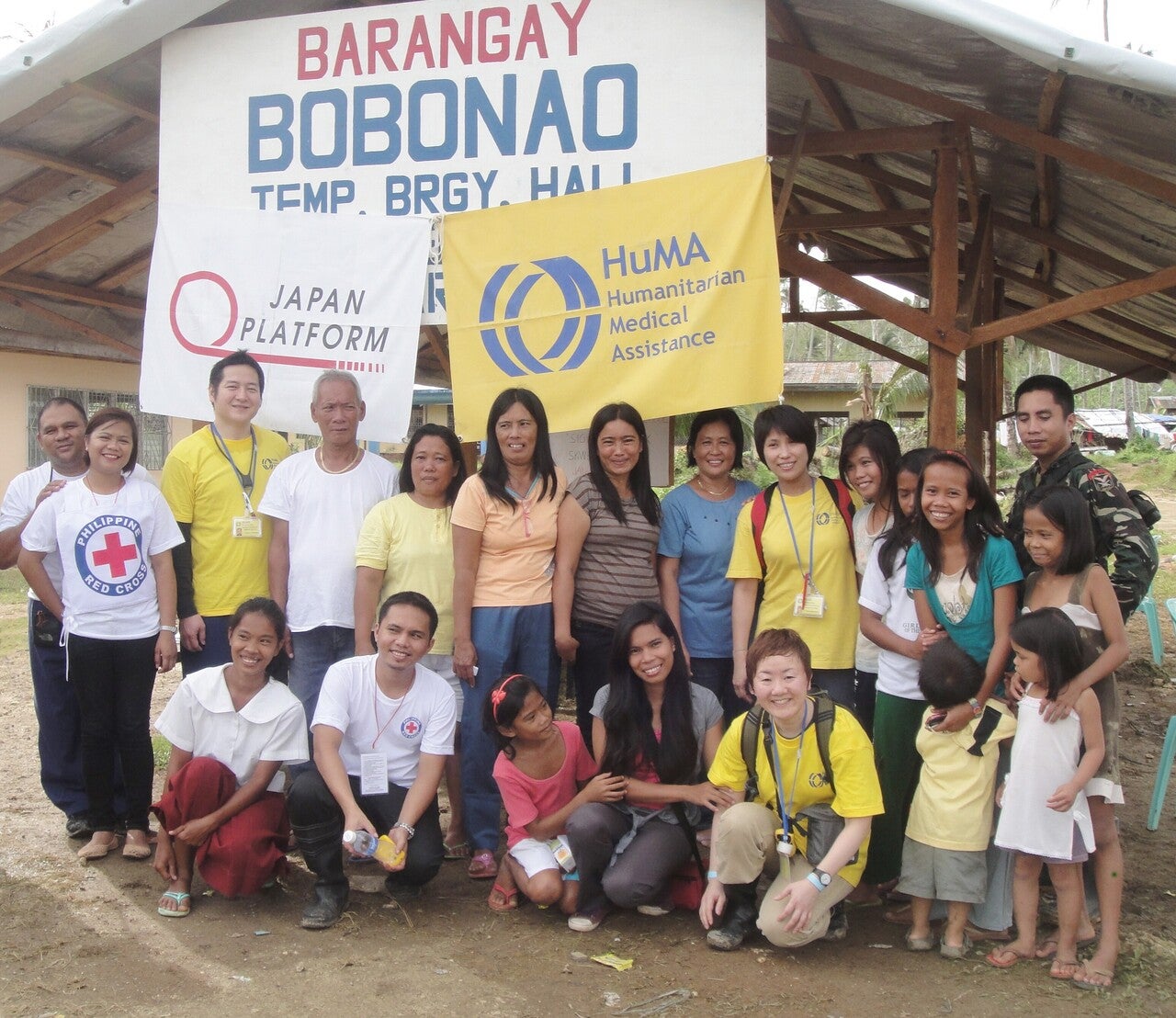| Junko Miyamoto (Faculty Member of School of Nursing, Himeji University) Interview that focusing on people participating in HuMA activities. The 2nd interview is about Junko Miyamoto, who teaches nursing in university. She considers her field to work as working in disaster sites while she is cultivating the future talent of disaster nursing.  “Nursing”as the common language “Nursing”as the common languageMy first mission of humanitarian assistance in disaster relief was supporting the earthquake relief in western China in 2008. Hyogo Emergency Medical Center, the hospital that I worked for, assigned me as a member of the supporting team of JICA to cooperate with the local doctors and nurses in the hospital to provide nurse care to the disaster victims. The medical staffs on site were Chinese and Japanese. Yet surprisingly, without actual words, the staffs mutually understood each other and was able to take actions to provide treatment accordingly or prepare in advance. Even though there was the language barrier, we had “nursing” as our common language. The connection was established by the experiences of nursing care to patients in each home country. I truly felt the power of nursing.  In the temporary built ICU inside the hospital of the disaster area in western China In the temporary built ICU inside the hospital of the disaster area in western China The assistance in China made me start noticing the nursing care of Japan is different from the rest of the world. As we have heard that Japan’s nursing care is considered very comprehensive around the world, we reaffirmed the high quality of Japan’s nursing care through receiving high appraisal to our care in the disaster area. On the other hand, we had learnings from the nursing care overseas. In Japan, it is very common that nurses take actions based on doctors’ instructions while in the rest of the world, it is different as nurses often take initiatives to deal with situations on site and manage teams. Thanks to the nurses from other countries, I have noticed that there are still many things we can do. Realizing toughness of local people in the field One of HuMA’s missions at disaster sites is “health promotion.” We provide expertise and information as well as offer lifestyle advice in order for local people to maintain good health. HuMA engaged in such activities particularly in Honduras from 2014 to 2016. Some expertise and information are not yet pervasive in many regions of the world. For example, importance of birth control and mother and child protection before and after childbirth; prevention of contracting dengue fever and other risky infectious diseases; relationship between nutrition and lifestyle diseases. Having the good knowledge and preventing diseases will surely save their lives. I am determined to continue making diligent efforts on this mission.  Handwashing demonstration at an elementary school in Honduras Handwashing demonstration at an elementary school in Honduras Although I am teaching disaster nursing and international nursing at university, I insist that my field to work is where affected people are. My mission is to deliver actual opinions from people in the field to students. Conversely, learning some measures through studies at university and giving back to the field is what I can do because I am a university professor. Disaster nursing in the field and disaster nursing as an academic field. Going forward, I intend to combine them and establish a condition where people with good expertise and sense of this area can exert their full potential at disaster sites. No one wants any disaster to happen, but there are people I met because of disasters. Local people who never forgot to smile despite of disasters and team members who thought together and strove to conduct medical activities against the backdrop of material and facility shortage. While spending time with them and feeling toughness that people naturally have, I thought that I was able to return to my origins. |
 |
| Warm and kind people at a disaster site of the 2012 Philippines typhoon |
By Yuki Domoto
Translation by Mariko Hirata and Yuheng Yu
(PR volunteers)


